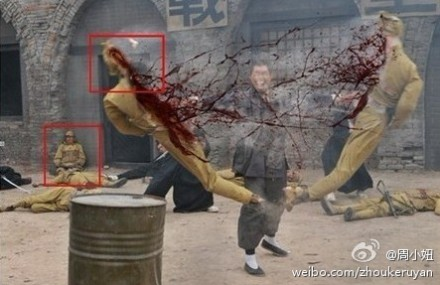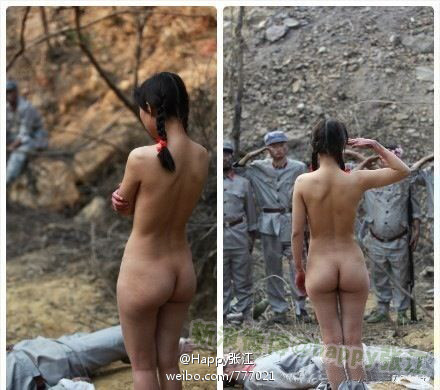
Even Chinese television execs know when too much is too much, apparently. “China’s television regulator has ordered a crack down on dramas about the country’s battles with Japan during and before World War Two and demanded they be more serious, state media said on Friday, following viewer complaints about ludicrous storylines,” Reuters reports.
A television “watchdog official,” Wang Weiping, told People’s Daily (via Retuers) that, “The anti-Japan war is a great act of heroism performed by the Chinese people against the invaders, and is a valuable resource for film and television creativity,” which, I suppose, could be true if your definition of “creativity” is this:

Or this:

Or this:
But back to the topic at hand: in classic euphemism, regulators say television execs should pull dramas that are “too entertaining.” They want serious shows that are more historically accurate. Vikings with less blood splatter?
What will become of the Chinese actors who specialize in roles of dying Japanese soldiers? Will they work again?
China cracks down on over-the-top anti-Japan dramas (Reuters)

















































I guess we won’t be seeing naked women being cut in half any time soon… =(
‘But back to the topic at hand: in classic euphemism, regulators say television execs should pull dramas that are “too entertaining.” ‘
Wow, Chinese TV could be LESS entertaining? Good lord, does everybody want the address of my satellite guy?
You know things are out of hand when the Chinese audience is screaming bullshit at a WW2 movie about beating the Japanese.
Here’s something quite interesting.
Men Behind the Sun (Chinese: 黑太阳731 / 黑太陽731; pinyin: hēi tài yáng 731, literally meaning “Black Sun: 731″) is a 1988 Hong Kong horror film directed by T.F. Mous.
The film is a graphic depiction of the war atrocities committed by the Japanese at Unit 731, the secret biological weapons experimentation unit of the Imperial Japanese Army during World War II.
The film opens with the passage “Friendship is friendship; history is history.” Mou said of the quote, “that’s the argument [I had] with the [Chinese] government, because the government says ‘no, we have a friendship with the Japanese’, I said ‘well, you can talk about your friendship, I am talking about history.’”[1]
http://en.wikipedia.org/wiki/Men_Behind_The_Sun
That is interesting. What has changed since those times when now violent anti-Japanese films are so ubiquitous even to the point of absurdity?